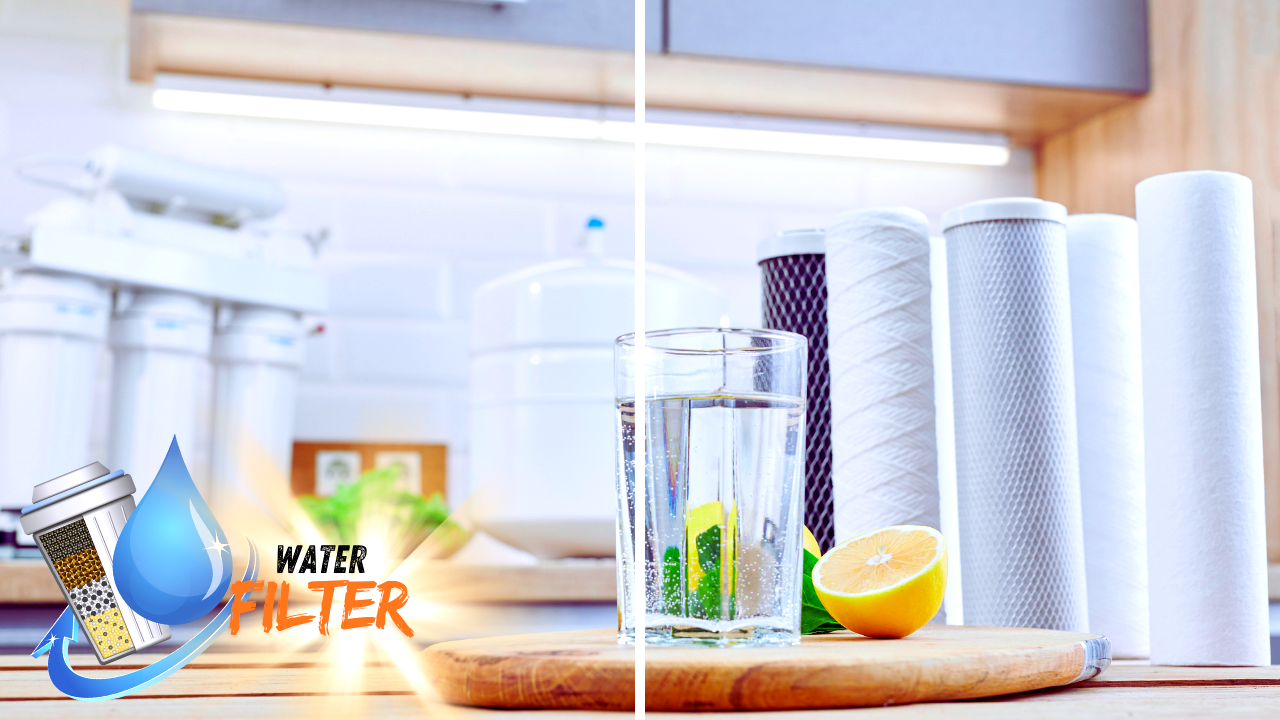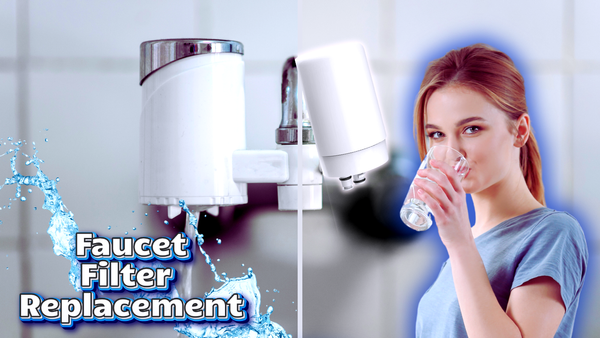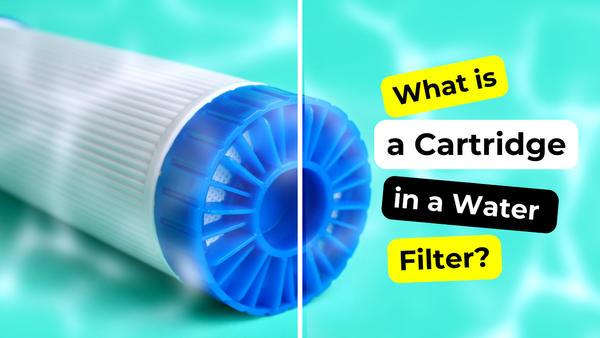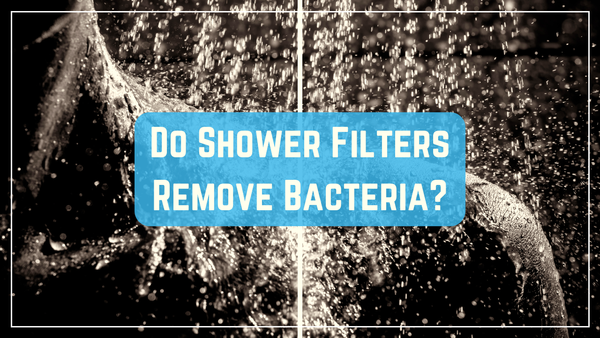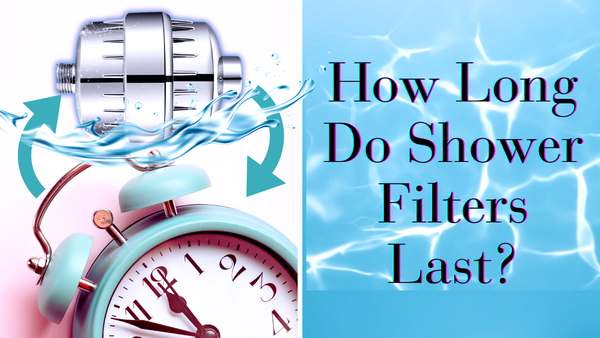Key Takeaways:
- Understanding Different Water Filters: Learn about various water filtration systems, including reverse osmosis, activated carbon, and faucet-mounted filters.
- Choosing the Right Filter: Discover how to select the best water filter based on your specific needs and water quality.
- Maintenance and Replacement: Understand the importance of regular maintenance and timely replacement of filters to ensure optimal performance.
Water is essential for life, and having access to clean, safe drinking water is crucial for maintaining good health. With numerous water filtration systems available, it can be challenging to determine which type of filter is best for drinking water. This article will explore various water filters, their benefits, and how to choose the right one for your needs.
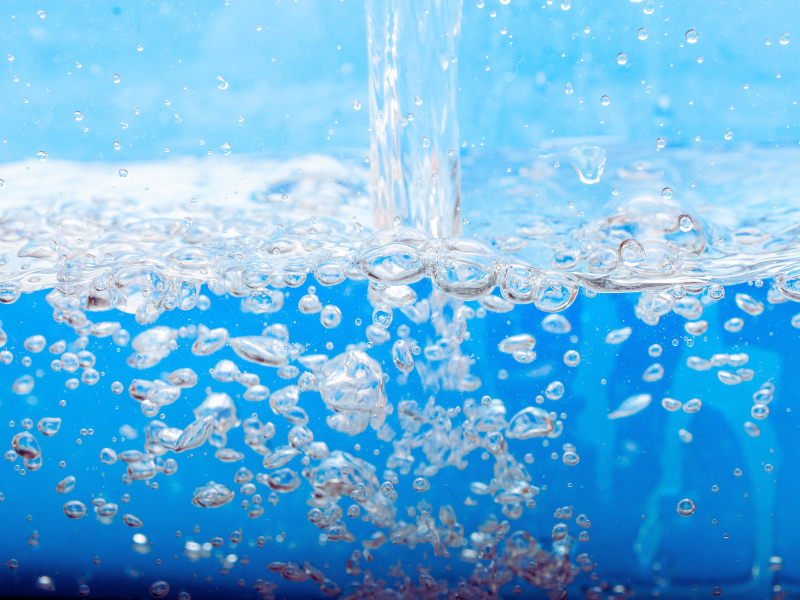
Understanding Water Quality
Before diving into the types of water filters, it's essential to understand your water quality. A water quality report from your local water supplier can provide valuable information about the contaminants present in your tap water. This report will help you identify the impurities you must address with a water filtration system.
Types of Water Filters
Reverse Osmosis Filters
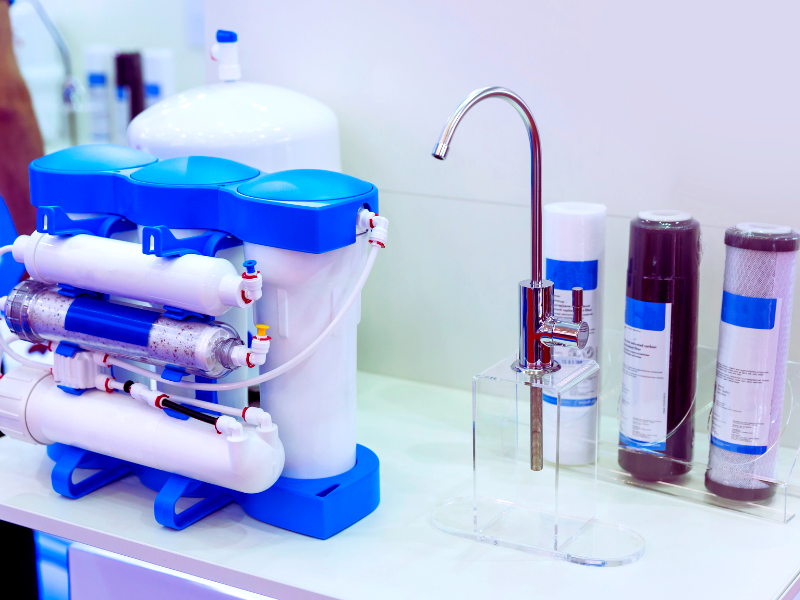
Reverse osmosis filters effectively remove many contaminants, including dissolved solids, heavy metals, and volatile organic compounds. These systems use a semi-permeable membrane to filter water, ensuring that only clean water passes through. Reverse osmosis systems are ideal for those seeking high-quality, purified water.
Activated Carbon Filters
Activated carbon filters are popular for their ability to remove chlorine, volatile organic compounds, and other contaminants that affect the taste and odor of water. These filters use activated carbon to adsorb impurities, making them an excellent choice for improving the taste and smell of tap water.
Faucet-Mounted Filters
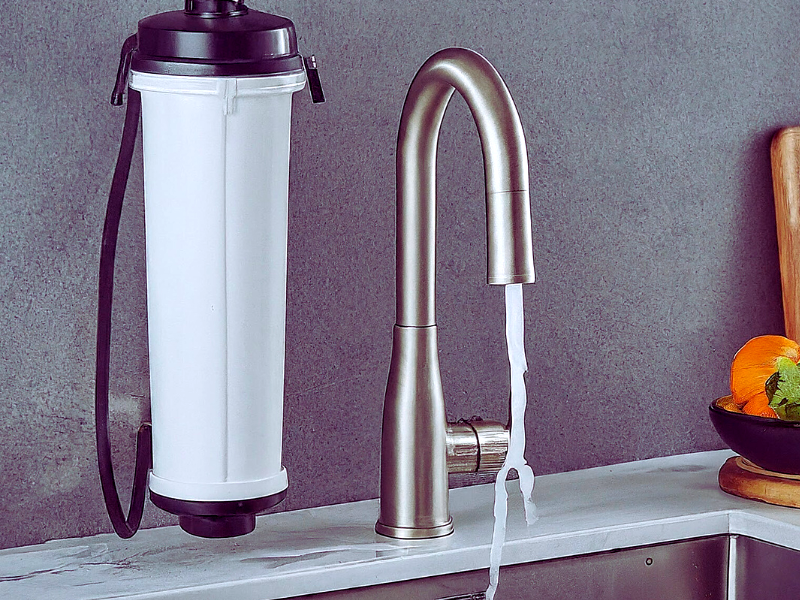
Faucet-mounted filters are convenient and easy to install. They attach directly to your faucet, providing filtered water on demand. These filters effectively remove chlorine, lead, and other common contaminants, making them a practical option for everyday use.
Pitcher Filters
Pitcher filters are portable and easy to use. They typically use activated carbon to remove impurities and improve the taste of water. While they may not be as comprehensive as other filtration systems, they are cost-effective for those looking to enhance their drinking water quality.
Under Sink Filters
Under-sink filters are installed beneath your kitchen sink, providing filtered water directly from your tap. These systems often use a combination of filtration methods, such as activated carbon and reverse osmosis, to ensure high-quality water. They are an excellent choice for those who want a more permanent and efficient filtration solution.
Countertop Filters
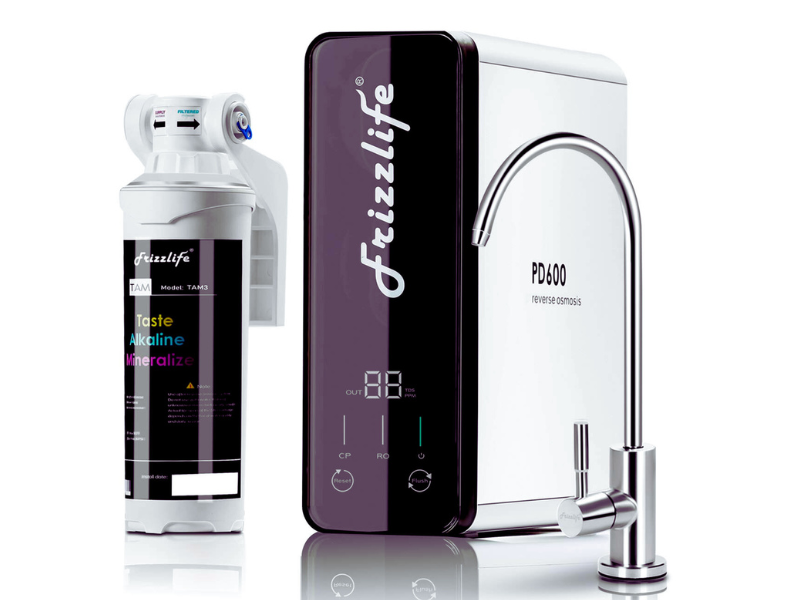
Countertop filters are similar to faucet-mounted filters but are placed on your countertop. They connect to your faucet via a hose and provide filtered water without needing installation. These filters effectively remove contaminants and are a convenient option for those who want a portable filtration system.
Whole House Filters
Whole-house filters are designed to filter water for your entire home. These systems are installed at the main water supply, ensuring that all water entering your home is filtered. They are ideal for those who want clean water for drinking, cooking, and bathing.
Choosing the Right Filter
Assessing Your Needs
When selecting a water filter, it's essential to consider your specific needs. Factors such as the contaminants in your water, your budget, and your lifestyle will influence your decision. For example, a reverse osmosis system may be the best choice if your water contains high dissolved solids.
Considering Certification
Look for filters certified by reputable organizations, such as NSF International or the Water Quality Association. These certifications ensure the filter meets specific standards for removing contaminants and providing safe drinking water.
Evaluating Maintenance Requirements
Different filters have varying maintenance requirements. Some filters must be replaced more frequently than others, and some systems require more complex maintenance procedures. Consider how much time and effort you will invest in maintaining your water filter.
The Science Behind Water Filtration
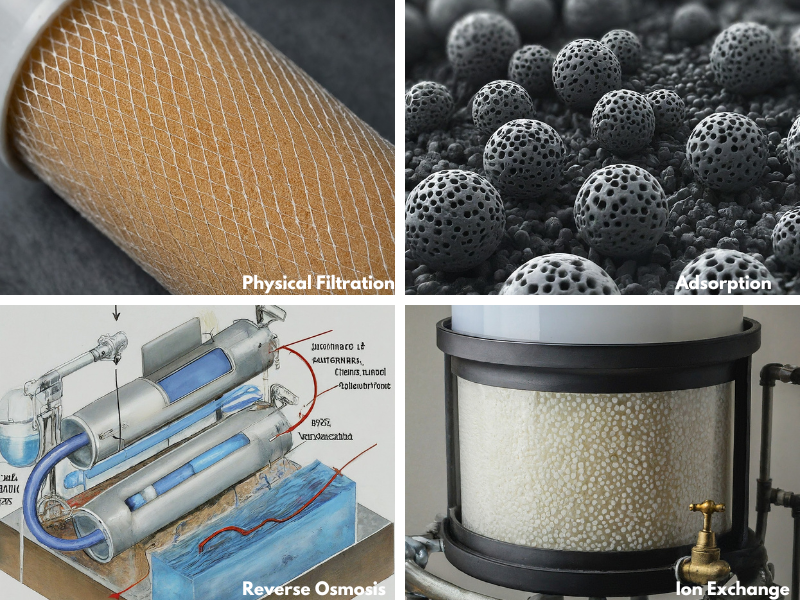
When discussing what type of filter is best for drinking water, it's essential to understand the science behind water filtration. Water filters remove contaminants from tap water, ensuring safe drinking water. For instance, reverse osmosis filters use a semi-permeable membrane to eliminate dissolved solids and other harmful contaminants. This highly effective process makes reverse osmosis systems a popular choice for many households.
On the other hand, activated carbon filters excel at removing volatile organic compounds and improving the taste and odor of water. These filters use carbon to attract and trap impurities, providing high-quality water. Whether you choose a faucet-mounted filter or a pitcher filter, understanding the science behind each filtration system can help you make an informed decision.
The Role of NSF/ANSI Certification in Water Filters
When considering what type of filter is best for drinking water, NSF/ANSI certification is a crucial factor. This certification ensures that water filters meet strict standards for safety and performance. For instance, reverse osmosis and activated carbon filters often carry these certifications, guaranteeing they effectively remove harmful contaminants like volatile organic compounds and heavy metals from tap water. By choosing certified filters, you can trust that your filtration system will provide high-quality water for your household.
NSF/ANSI certification also covers the removal of specific contaminants, such as lead and chlorine taste, which are common in municipal water supplies. For example, with this certification, faucet-mounted filters and under-sink filters can significantly improve your drinking water's taste and safety. Additionally, certified water filter pitchers are convenient for those seeking filtered water without installing a complex system. Always check for NSF/ANSI certification to ensure your water treatment system meets the highest standards for safe drinking water.
Environmental Impact
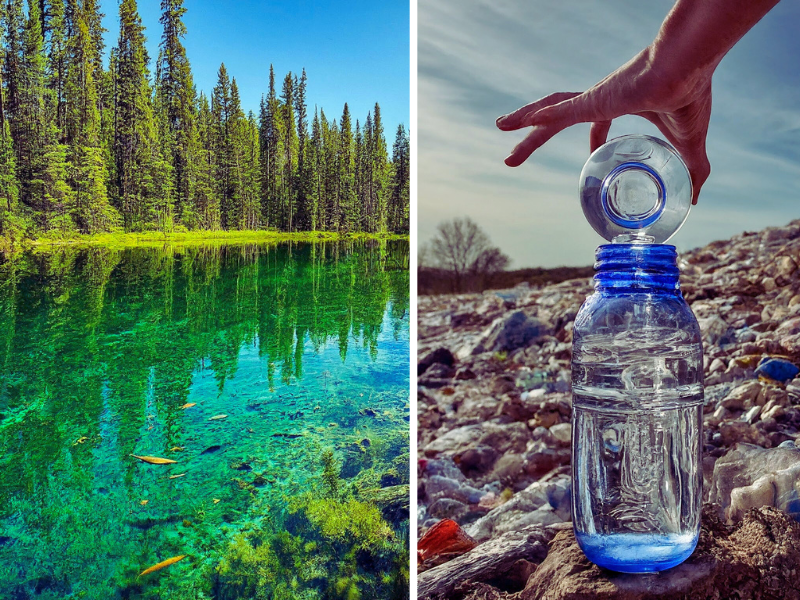
The environmental impact of water filtration systems is important for eco-conscious consumers. While reverse osmosis systems are effective at providing purified water, they can waste a significant amount of water during the filtration process. On the other hand, activated carbon filters and pitcher filters tend to be more water-efficient, making them a greener choice for filtering water. By selecting a particular filter that balances performance with environmental responsibility, you can contribute to a more sustainable future.
Moreover, the disposal of replacement filters can also affect the environment. For instance, faucet-mounted and under-sink filters often require frequent changing of filter cartridges, which can add to landfill waste. Opting for filters with longer lifespans or those made from recyclable materials can mitigate this impact. Additionally, using water filtration systems reduces reliance on bottled water, a significant source of plastic pollution. By choosing eco-friendly filtration options, you help protect the environment while ensuring access to safe drinking water.
Comparing Filter Types: A Blind Taste Test
Ever wondered if you could taste the difference between filtered and unfiltered water? A blind taste test can be an eye-opener. Participants often find that water filtered through reverse osmosis systems tastes purer compared to tap water. This is because reverse osmosis filtration systems remove a wide range of contaminants, including chlorine taste and volatile organic compounds.
In another test, water filtered through activated carbon filters was preferred for its improved taste and odor. These filters are particularly effective at removing chlorine and other organic compounds. Whether using a water filter pitcher or under sink filters, a blind taste test can highlight the benefits of different filtration systems, helping you choose the best option for your needs.
Benefits of Water Filter

Improved Taste and Odor
Filtered water often tastes and smells better than unfiltered water. Removing chlorine, volatile organic compounds, and other impurities can significantly enhance the overall quality of your drinking water.
Health Benefits
A water filter can help remove harmful contaminants, such as lead, mercury, and pesticides, from your drinking water. This can reduce exposure to these substances and improve overall health.
Environmental Impact
Using a water filter can reduce your reliance on bottled water, which can have a significant environmental impact. By filtering your tap water, you can help reduce plastic waste and lower your carbon footprint.
Reverse Osmosis vs. Activated Carbon Filters
Reverse Osmosis Filters
A family living in an area with high levels of dissolved solids and heavy metals in tap water decided to install a reverse osmosis system. After using the system for several months, they noticed a significant improvement in the taste and quality of their drinking water. The reverse osmosis system effectively removed the contaminants, providing them with clean, safe water.
Activated Carbon Filters
Another family, concerned about their tap water's chlorine taste and odor, opted for an activated carbon filter. They found that the filter effectively removed the chlorine and improved the taste of their water. While the activated carbon filter did not remove as many contaminants as the reverse osmosis system, it was sufficient for their needs and substantially improved water quality.
Maintenance and Replacement
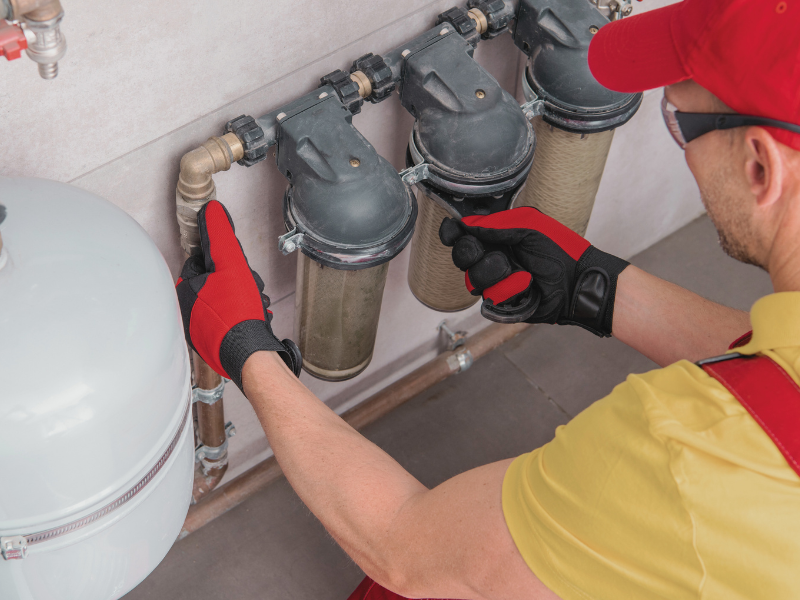
Regular maintenance is crucial for ensuring the optimal performance of your water filter. This includes replacing filter cartridges as the manufacturer recommends and cleaning the system as needed. Neglecting maintenance can reduce the filter's effectiveness and compromise the quality of your drinking water.
Replacing Filters
Different filters have varying lifespans, and it's essential to replace them according to the manufacturer's guidelines. For example, activated carbon filters typically need to be replaced every few months, while reverse osmosis membranes may last several years. Keeping track of replacement schedules will help ensure your filter continues providing clean, safe water.
Summary
In summary, selecting the right water filter involves understanding your water quality, assessing your needs, and considering factors such as certification and maintenance requirements. Different filters, such as reverse osmosis, activated carbon, and faucet-mounted filters, offer various benefits and are suitable for different situations. Regular maintenance and timely filter replacement are crucial for ensuring the effectiveness of your water filtration system.
Choosing the best water filter for drinking water depends on your specific needs and water quality. You can make an informed decision by understanding the different types of filters available and considering factors such as certification, maintenance requirements, and your budget. Regular maintenance and timely filter replacement are essential for ensuring the optimal performance of your water filtration system.
FAQ
What is the best type of filter for removing lead from drinking water?
Reverse osmosis filters and activated carbon filters are both effective at removing lead from drinking water. Reverse osmosis systems are particularly efficient at removing a wide range of contaminants, including lead. At the same time, activated carbon filters can also reduce lead levels and improve the taste and odor of water.
How often should I replace my water filter?
The filter replacement frequency depends on the filter type and the manufacturer's recommendations. For example, activated carbon filters typically need to be replaced every few months, while reverse osmosis membranes may last several years. It's essential to follow the manufacturer's guidelines to ensure the optimal performance of your water filter.
Are water filters necessary if I have a water softener?
Water softeners are designed to remove minerals that cause hard water, such as calcium and magnesium. However, they do not remove contaminants like chlorine, lead, and volatile organic compounds. Using a water filter with a water softener can help ensure your drinking water is free from a wide range of impurities.
